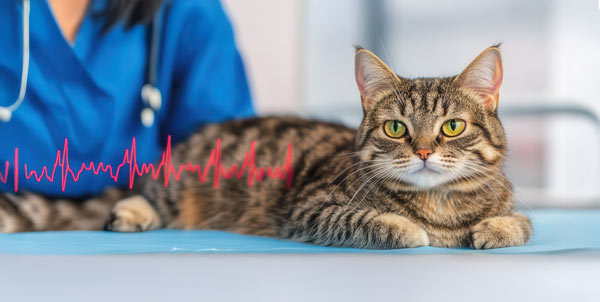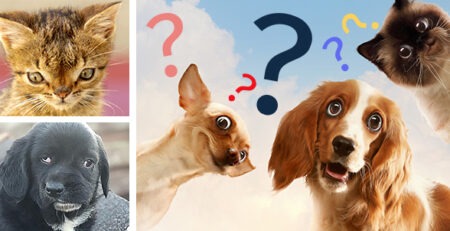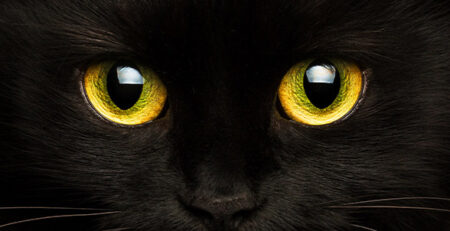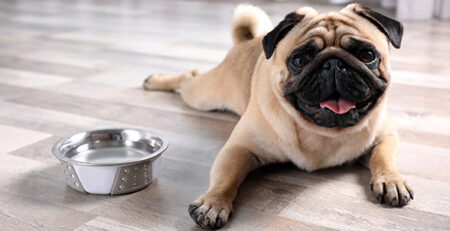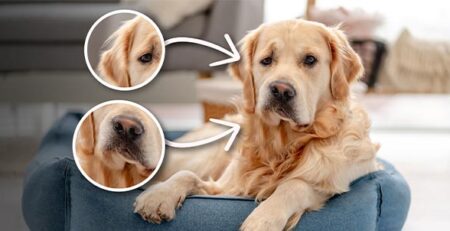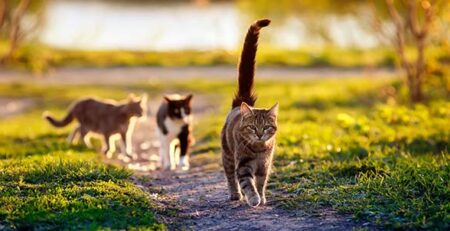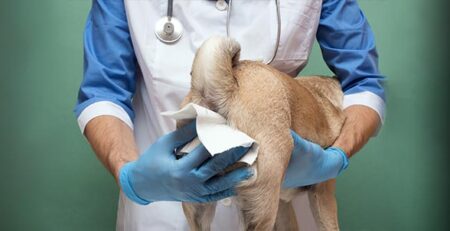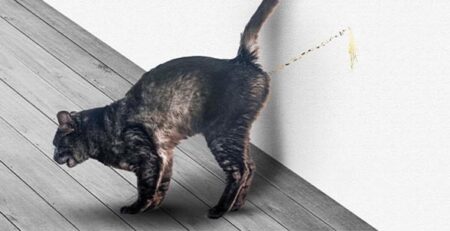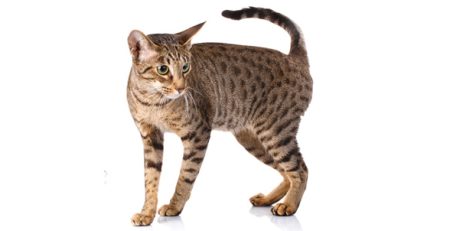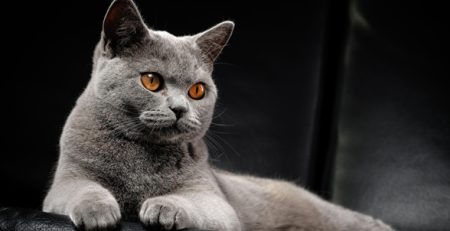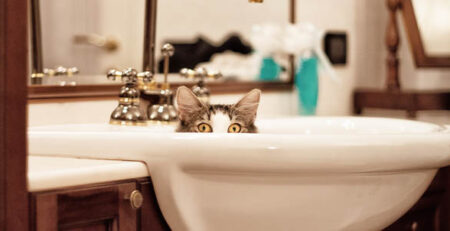Table of Contents
Hypertrophic cardiomyopathy in the cat: a sneaky disease
Hypertrophic cardiomyopathy(HCM) is an inherited heart disease characterized by abnormal thickening(hypertrophy) of the cat heart, particularly the left ventricle.
Hypertrophy affects the heart’s ability to pump blood effectively.
So, the result is a reduction in the ventricular cavity, which results in an increase in blood pressure.
This increased pressure can cause blood flow to the lungs, leading to lung congestion and heart failure.
Three forms of feline myocardial hypertrophy are known
- Spread symmetrically to the entire ventricular wall
- Asymmetric, with localization predominantly to the posterior wall of the left ventricle
- Segmentary, i.e., confined to individual segments of ventricular myocardium
The manifestation of hypertrophic cardiomyopathy in cats can vary significantly from individual to individual.
In fact, many cats with hypertrophic hearts remain asymptomatic for long periods, while others may develop more obvious clinical signs.
Some feline breeds are predisposed to hypertrophic cardiomyopathy
The incidence of this condition is considerable in some feline breeds:
– Maine Coon
– Ragdoll
– British Shorthair
– American Shorthair
A mutation on the MYBPC3 gene responsible for the disease has been identified in Maine Coons and Ragdolls.
However, the prevalence is also high in other breeds such as British Shorthair, Norwegian Forest Cat, Scottish Fold, Sphynx, Persian, Siberian, Bengali and Rex.
It is most evident in cats aged 3 to 7 years, but can occur in even younger or older specimens
Symptoms of feline hypertrophic myocardiopathy
The symptoms of hypertrophic cardiomyopathy can be subtle and in some cases, may not manifest until advanced stages of the disease.
Some of the most common clinical signs include:
– Shortness of breath or coughing
– Decreased activity, a general lack of interest in daily activities or fatigue during play or physical activity.
– Decreased appetite
– In some cases, fluid in the lungs can lead to episodes of vomiting.
– Fainting or collapse may occur suddenly and are a consequence of cardiac arrhythmias.
In the presence of one or more of these symptoms, it is critical to consult your fuduciary veterinarian.
Diagnosis: a multidisciplinary approach
Diagnosis of hypertrophic cardiomyopathy in cats requires a multidisciplinary approach using different diagnostic techniques to differentiate hypertrophic cardiomyopathy from other cardiac conditions.
The veterinarian will initially take a thorough history and conduct a detailed clinical examination.
Among the most commonly used diagnostic tools are:
– Echocardiogram: to directly visualize the thickness of the heart muscle and its function
– Chest X-rays: to evaluate signs of pulmonary congestion and cardiac enlargement
– Electrocardiogram (ECG): to identify any cardiac arrhythmias associated with cardiomyopathy
– Blood tests: to rule out other diseases that might affect the cat’s heart health
It is important to make an early diagnosis, as this may allow early therapeutic intervention.
Therapy and treatment
Treatment of hypertrophic cardiomyopathy in cats is aimed at managing symptoms and improving quality of life.
There is currently no definitive cure for HCM, but there are several treatment options available.
Therapeutic strategies include drugs that reduce pressure in the ventricles and improve cardiac function.
Cats with HCM should be monitored regularly by the veterinarian to assess any progress or changes in the condition.
Changes in the lifestyle of the cat with HCM
Along with drug treatment, measures to reduce stress and limit intense exercise in cats should be combined to prevent potential complications.
A balanced diet rich in essential nutrients can also support kitty’s overall health.
To have your cat checked and for periodic check-ups, contact the veterinary doctors on our staff who are always available to you.
We would also like to remind you that Clinica La Veterinaria is always open h24 every day including holidays and with First Aid service from 8 pm to 8 am.
For the joy of seeing them HAPPY

